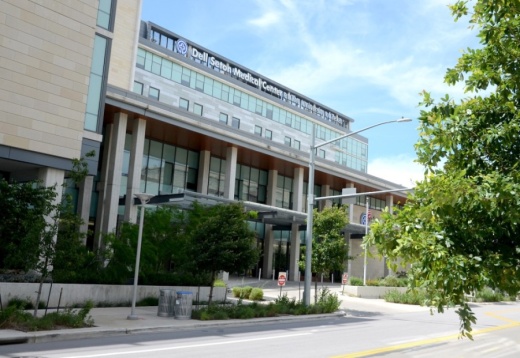The Texas Department of State Health Services announced Dec. 4 it had allotted 224,250 of its initial shipment of 1.4 million Pfizer vaccine doses to medical facilities across the state.
In the weeks following the initial administration of the vaccine to health care workers, the DSHS will continue to allocate doses. According to the DSHS, initial allotments were made based on providers' capacity to store the vaccine, which must be kept at ultra-cold temperatures, and the number of health care workers that hospitals estimated could be quickly vaccinated at their facilities. In Travis County, the following hospitals have been allotted vaccines: Ascension Seton Medical Center Austin, Dell Children's Medical Center of Central Texas, St. David's South Austin Medical Center, Dell Seton Medical Center at the University of Texas, UT Health Austin/Dell Medical School, Austin State Hospital, St. David's North Austin Medical Center and St. David's Medical Center. Each facility is set to receive a minimum of 975 doses, for a total of 13,650 at Travis County hospitals.
St. David's Round Rock Medical Center, Baylor Scott & White Health Medical Center Round Rock and Ascension Seton Hays Hospital will also receive 975 doses each.
The DSHS is expected to receive more doses of the Pfizer vaccine in the coming weeks—as well as doses of the Moderna vaccine, once it has received emergency use authorization approval by the FDA. The FDA is scheduled to discuss Moderna's vaccine Dec. 17, one week after it discusses Pfizer's on Dec. 10.
Dr. Mark Escott, interim health authority for the city of Austin and Travis County, expressed confidence in Pfizer's vaccine ahead of its FDA consideration date; he said he has read the FDA's findings on the vaccine.
"I'm extremely impressed with the efficacy and the safety of this vaccine. Overall, the efficacy, the effectiveness of the vaccine is 94.6% and 95% for those individuals between the ages of 16 and 55—much better than I think anyone expected it to be, but it is impressive," Escott said.
Escott noted that, per the FDA, the side effects associated with Pfizer's shot, which include chills and pain or swelling at the injection site, tend to come after the second of two doses and to be relatively mild. He asserted that there were "really no concerning or concerning adverse events that would give us pause."





